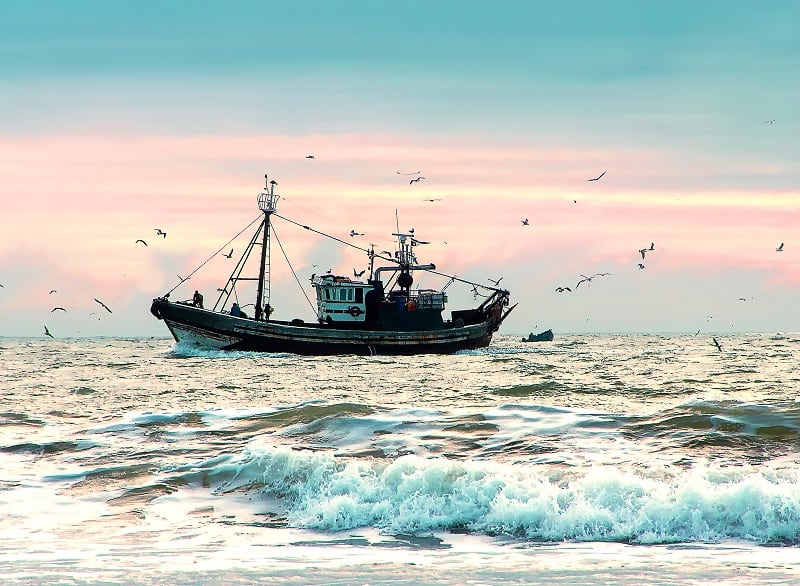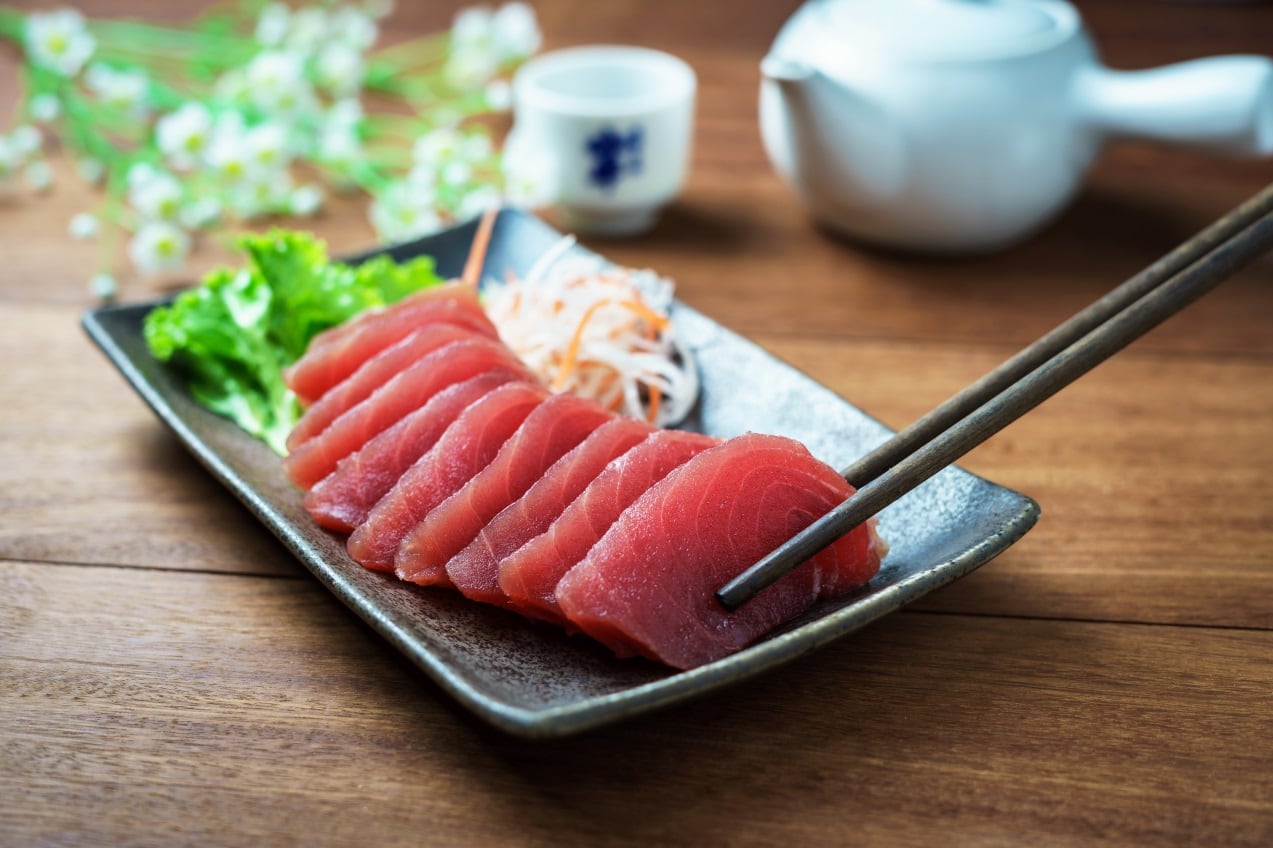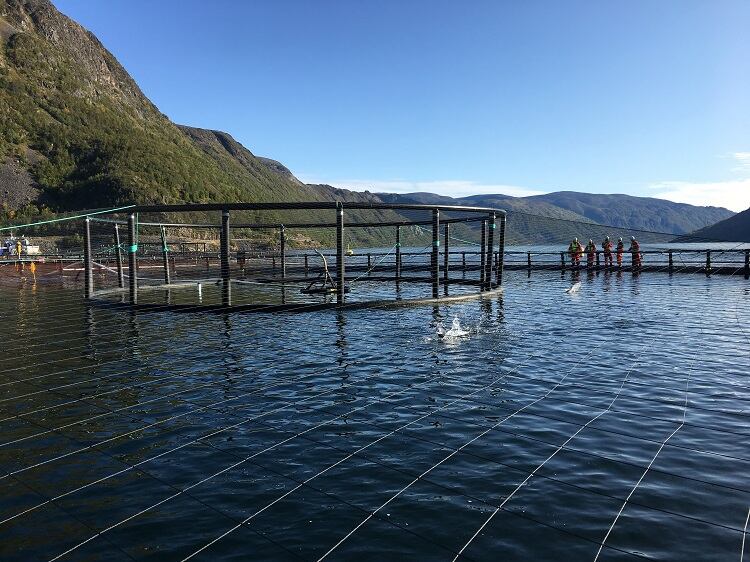British eaters are famously, and curiously for an island-nation, unadventurous when it comes to fish.
The UK exports around 70% of its seafood catch to Europe and Asia, including sought-after delicacies such as salmon, lobster, langoustines, cuttlefish, crab, whiting and lemon sole. The value of UK seafood exported to Europe and beyond amounts to about £1.5bn (€ 1.6bn) every year, according to industry authority Seafish. Meanwhile, around 70-80% of the seafood consumed in the UK – mainly the ‘big five’ of cod, haddock, tuna, salmon and prawns -- comes from overseas.
Receding overseas demand amid coronavirus has therefore hit the industry hard. The National Federation of Fishermen's Organisations (NFFO) calls the virus a ‘temporary but undoubtedly severe shock’.
Crab was an early victim, it reported. The sector had been enjoying increased demand from China but has now seen a dramatic fall in price. Restaurant and open market closures in Italy, France and Spain have also impacted species such as cuttlefish, monkfish, hake and megrim. Spain’s per capita consumption of hake is around 6kg per annum, for example.
The NFFO reported that individual fishing businesses and producer organisations are taking their own steps to mitigate impacts by arranging shorter trips, staggering and planning landings, reducing quantities landed, in order to avoid flooding the market and triggering a price collapse.
"The shellfish market seems to be very badly affected,” NFFO chief executive Barrie Deas told FoodNavigator. “A lot of that is the hospitality and restaurant trade, and also the export market… there are anxieties about what might happen there.”
‘A potential reorientation towards the British market’
But a silver lining, according to Deas, could be improved demand from British consumers. “We're seeing port-level initiatives to sell and deliver directly to doorstep taking off. It's small in comparison to the main supply chains, but it is definitely developing and quite rapidly in some places,” he said.
“If you wanted to try crab, lobster, dover sole, and some of these more exotic and quite expensive species, this might be a very good time to do it and have it delivered to your home in some cases. We are looking for a reorientation towards the British market. This is a very good time to try some of these less favoured species.”
He stressed that demand, not supply, was being hit. “The fish is being landed in quantities - the first part of the supply chain is there and ready - it's the demand side that's affected by this virus. It will be interesting to see what adaptations will take place.”
He noted, too, that British consumers, while traditionally unadventurous with fish, were becoming slightly better. "At one time monkfish and prawns were thrown away as undesirable bycatch and now they are their most valuable components in the catch."
‘An opportunity for people to try UK seafood’
It’s a similar story in the salmon market. According to the Scottish Salmon Producers Organisation, the sector is witnessing a drop in demand from China, but also an upturn in UK sales as people rush to buy foods for their freezers.
Industry body Seafish agrees the situation is grave, but one that does present an opportunity for people to try UK seafood. A spokesperson told FoodNavigator: “We’ve already observed very low prices for some fish and shellfish landed in UK ports and markets. This happened immediately after the usual export routes were closed. While exporting is not possible, fishing businesses without established UK supply chains are struggling to get prices high enough to cover their costs so may be unable to go to sea. However, some parts of the UK fishing fleet can still supply their existing UK customers and continue to operate.
“While UK consumers are not used to eating some of the locally caught species, the current situation does present a good opportunity for people to try UK seafood. Consumers can contact fish mongers and fish delivery vans to see what they have available and in some supermarkets, there is seafood still available.”
Seafish is supporting a new Defra marketing campaign which aims to get more UK consumers to eat more seafood caught in UK waters. The #SeaForYourself campaign launched last week (the timing with coronavirus was a coincidence) and is scheduled to run until early May. It highlights the healthy and great tasting seafood caught and landed in the UK, and offers consumers guidance on buying, cooking and eating species that they might not be confident about preparing.
'A huge opportunity for small-scale fisheries'
Caroline Bennett, founder of Sole of Discretion, a collective of small-scale fishers fishing sustainably out of Plymouth harbour in Devon on the English south-west coast, told FoodNavigator that coronavirus is definitely having an impact on fisheries and prices.
"Spain and Italy just aren't buying,” she said. “80% of the fish landed in the south west goes overseas and mainly to Europe. So it's having a huge impact that they are not buying."
However, she hopes that the market situation could bring openings for smaller fisheries. Hake and cuttlefish were once going to Spain but are now 'coming more to our own markets', for instance. She added: "The boats are saying because prices have fallen, they are not going to go out to sea. If the bigger boats tie up this could potentially be a wonderful opportunity for the smaller boats to go out there and catch a myriad of species and try and sell into the local market and try and get British people to eat it."
The myriad of ‘cheap and plentiful species’ includes whiting, colie, pouting, ling, flounder, dab, and dogfish. These fish are usually 'at the bottom of the wish list for most people', but this reputation is undeserved, she said. "I think colie and pouting are two of the most underrated species for the price they are. They are delicate sweet tasting fish. Dogfish is a bit like swordfish steak - dense meat that goes well in stews and curries."
‘We need to make sure our food security and biodiversity remain priorities’
The Marine Conservation Society warned that huge demand for previously ‘under-utilised species can have dangerous knock-on effects for the environment’.
“We don’t want responsible fishermen desperate to make money using less sustainable methods to increase catches at the expense of marine life,” a spokesperson told FoodNavigator.
Neither did it agree that the coronavirus pandemic was likely to precipitate a dramatic shift in UK’s seafood appetite. “Whilst Brexit presents barriers to international trade, COVID-19 stops it entirely. Trade within the UK and access to fish for consumers will be hit very hard, with many supermarkets announcing the closure of their fish counters in the past days. However, unfortunately, coronavirus is unlikely to make British consumers buy more unusual, locally caught seafood, Britain has never really had an appetite for seafood from its own waters.
“Today, Brits have a fear factor about fish that the Spanish, French and Italians don’t seem to have, hence the demand for portion-sized fillets of larger species like cod, haddock, salmon, tuna. While there might be a growing appetite for species outside of the ‘Big Five’, there are a lot of barriers to Brits actually purchasing and consuming a wider range of seafood, both in knowledge, but also access. Most high street fishmongers have closed down and supermarkets rarely stock more unusual British species, as they don’t really sell and don’t come in the huge volumes needed to sate huge supply chains.”
The spokesperson continued: “Despite this global crisis, we need to make sure our food security and biodiversity remain priorities.”




